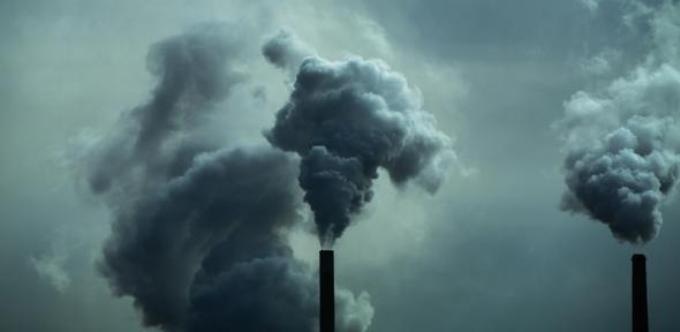Jun 5 2018
 Image Credit: Rich
Image Credit: Rich
Macroeconomic simulations reveal that rates of technological change in energy efficiency and renewable power are likely to cause an unexpected decrease in demand for fossil fuels, possibly triggering a global financial crisis. Experts propose a “carefully managed” change to low-carbon investments and policies to deflate this “carbon bubble”.
For a long time, fossil fuel stocks have been a safe financial wager. With price rises estimated until 2040* and governments stalling or rowing back on the Paris Agreement, investor confidence is likely to be up.
However, a new study recommends that the drive behind technological change in the worldwide power and transportation industries will result in a dramatic drop in demand for fossil fuels in the near future.
The research shows that this will now take place irrespective of apparent market certainty or the implementation of climate policies by major countries.
Comprehensive simulations created by an international team of economists and policy authorities show this drop in demand has the potential to leave huge reserves of fossil fuels as “stranded assets”: sharply moving from high to low value sometime before 2035.
Such a drastic slump in fossil fuel price could cause a major “carbon bubble” constructed on long-term investments to burst. According to the research, the equivalent of between one and four trillion US dollars could be cleared off the global economy in fossil fuel assets alone. A loss of US$0.25 trillion caused the crash of 2008 by comparison.
Reporting their findings in the June 5th issue of the journal Nature Climate Change, scientists from Cambridge University (UK), Radboud University (NL), the Open University (UK), Macau University, and Cambridge Econometrics, debate that there will be clear economic winners and losers as a result.
China, Japan, and various EU nations presently depend on high-cost fossil fuel imports to meet energy requirements. They could see national expenditure fall and—with the appropriate investment in low-carbon technologies—an improvement to both Gross Domestic Product and increased employment in sustainable industries.
However, big carbon exporters with comparatively high production costs, such as Canada, USA, and Russia, would witness domestic fossil fuel industries breakdown. Scientists caution that losses will only be aggravated if incumbent governments continue to disregard renewable energy in support of carbon-intensive economies.
Until now, observers mostly paid attention to the likely effectiveness of climate policies, but not to the ongoing and effectively irreversible technological transition,”
Dr Jean-François Mercure, Lead Author, The University of Cambridge
The research over and over again ran simulations to estimate the outcomes of many combinations of global environmental and economic change. It is the first time that the development of low-carbon technologies has been charted from historical data and added into ‘integrated assessment modeling’.
Our analysis suggests that, contrary to investor expectations, the stranding of fossil fuels assets may happen even without new climate policies. This suggests a carbon bubble is forming and it is likely to burst.
Individual nations cannot avoid the situation by ignoring the Paris Agreement or burying their heads in coal and tar sands. For too long, global climate policy has been seen as a prisoner’s dilemma game, where some nations can do nothing and get a ‘free ride’ on the efforts of others. Our results show this is no longer the case.”
Prof. Jorge Viñuales, Co-Author, The University of Cambridge
However, one of the most disquieting economic possibilities proposed by the research comes with an unexpected push for climate policies (a ‘two-degree target’ situation) combined with declines in fossil fuel demand but sustained levels of production. This could see a preliminary US$4 trillion of fossil fuel assets wiped off the balance sheets.
One of the factors that may add to the commotion caused by fossil fuel asset stranding is what’s referred to as a “sell-out” by Organization of the Petroleum Exporting Countries (OPEC) countries in the Middle East.
If OPEC nations maintain production levels as prices drop, they will crowd out the market. OPEC nations will be the only ones able to produce fossil fuels at the low costs required, and exporters such as the US and Canada will be unable to compete.”
Hector Pollitt, Co-Author
Viñuales notes that China is poised to benefit most from fossil fuel stranding. “China is already a world leader in renewable energy technologies, and needs to deploy them domestically to tackle dangerous levels of pollution. Additionally, stranding would take a higher toll on some of its main geopolitical competitors. China has a strong incentive to push for climate policies.”
The research authors propose that economic damage from adherence to fossil fuels may result in political turmoil of the kind the world is perhaps already witnessing. “Mass unemployment from carbon-based industries could feed public disenchantment and populist politics,” Viñuales said.
The researchers debate that preliminary actions should include both the diversifying of energy supplies and investment portfolios. “Divestment from fossil fuels is both a prudential and necessary thing to do,” said Mercure. “Investment and pension funds need to evaluate how much of their money is in fossil fuel assets and reassess the risk they are taking.”
“A useful step would be to expand financial disclosure requirements, making companies and financial managers reveal assets at risk from fossil fuel decline, so that it becomes reflected in asset prices,” Mercure added.
*International Energy Agency. World Energy Outlook (OECD/IEA, 2016).